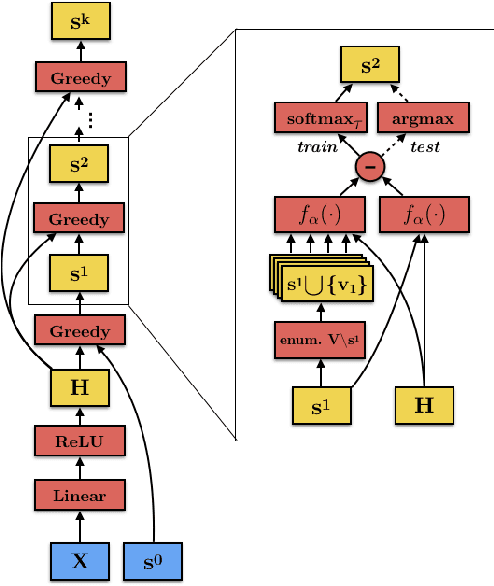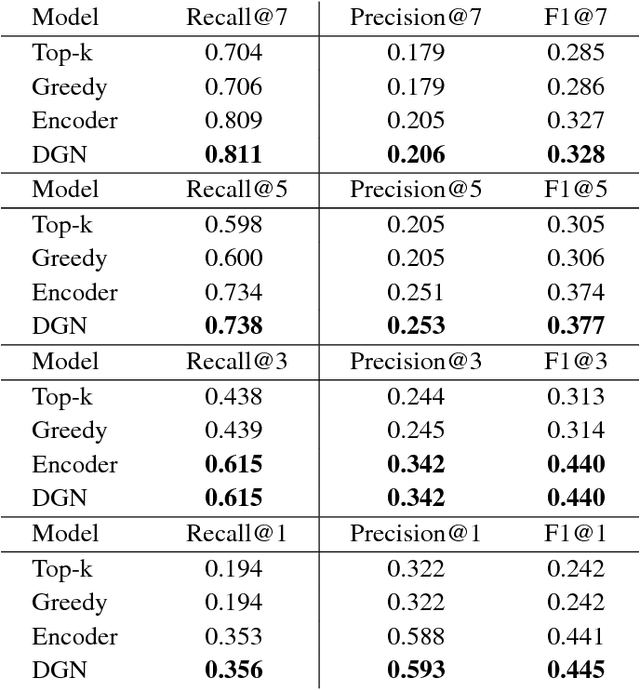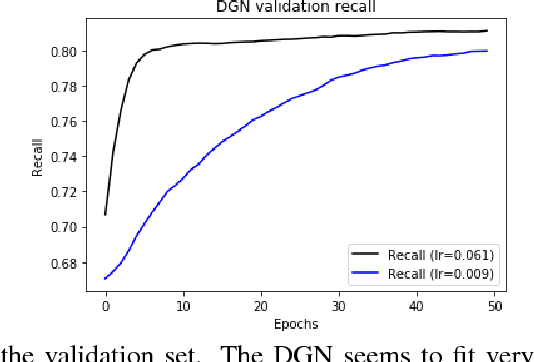Differentiable Greedy Networks
Paper and Code
Oct 30, 2018



Optimal selection of a subset of items from a given set is a hard problem that requires combinatorial optimization. In this paper, we propose a subset selection algorithm that is trainable with gradient-based methods yet achieves near-optimal performance via submodular optimization. We focus on the task of identifying a relevant set of sentences for claim verification in the context of the FEVER task. Conventional methods for this task look at sentences on their individual merit and thus do not optimize the informativeness of sentences as a set. We show that our proposed method which builds on the idea of unfolding a greedy algorithm into a computational graph allows both interpretability and gradient-based training. The proposed differentiable greedy network (DGN) outperforms discrete optimization algorithms as well as other baseline methods in terms of precision and recall.
 Add to Chrome
Add to Chrome Add to Firefox
Add to Firefox Add to Edge
Add to Edge